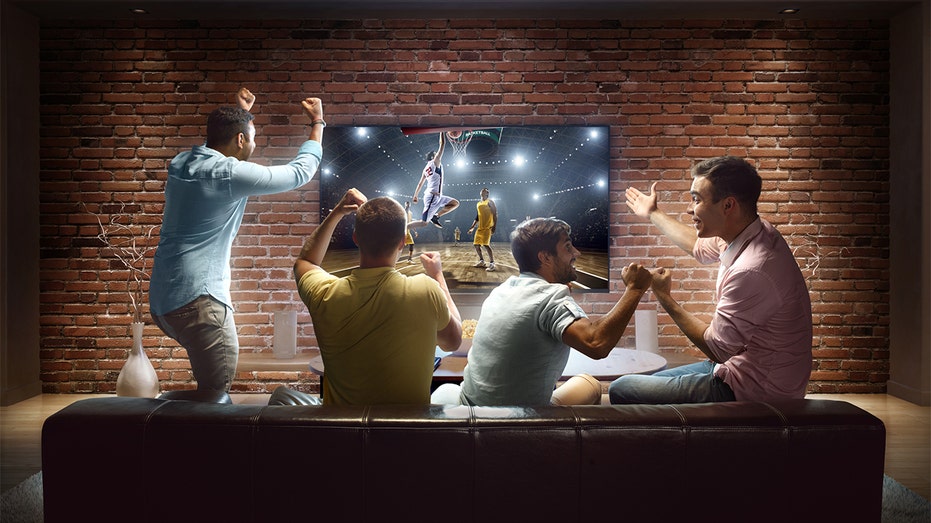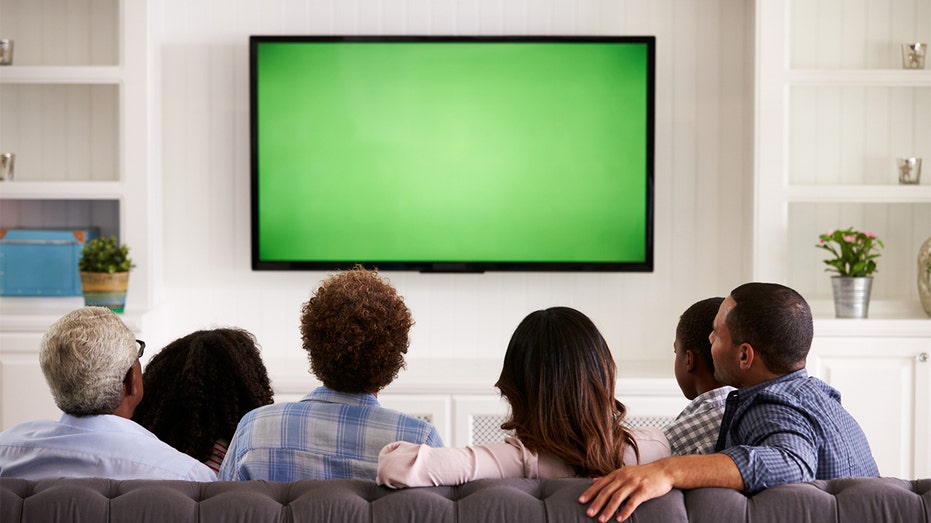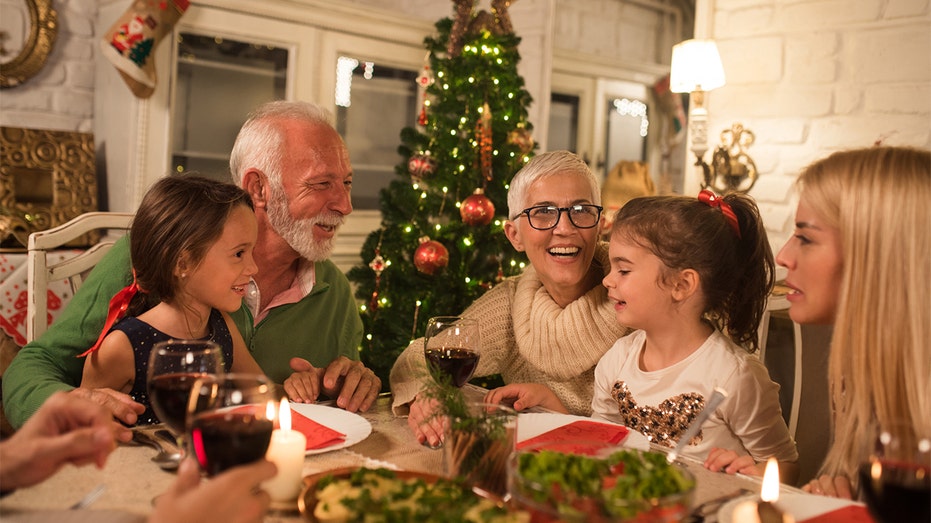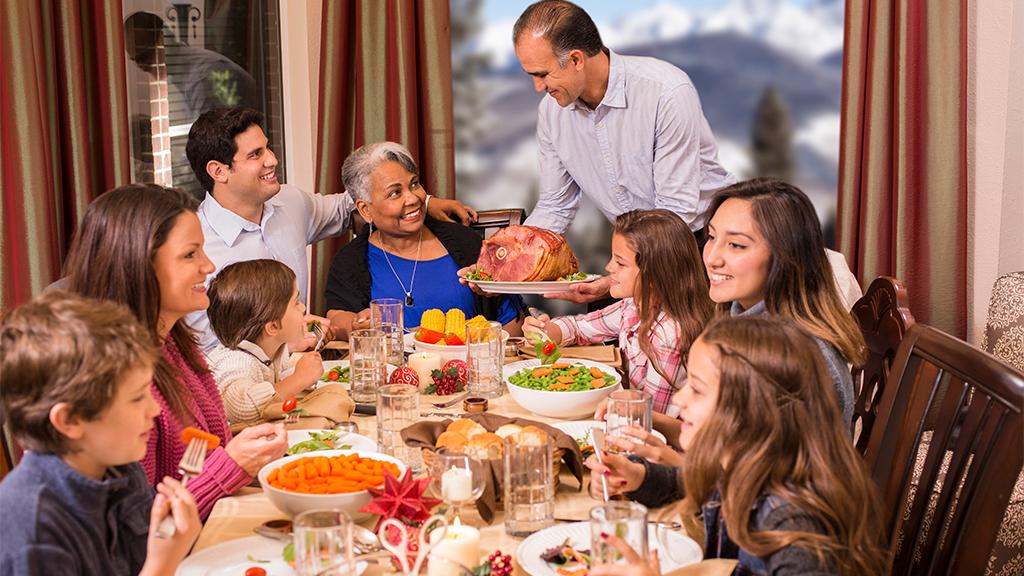How to watch TV at holiday gatherings, according to an etiquette expert
‘I really put a premium on human relationships and human interaction’
As friends and family gather to celebrate the holidays, there may come a point where the television comes on.
That’s not necessarily a bad thing, according to etiquette expert Daniel Post Senning, from the Emily Post Institute.
“We live in a diverse, complex, often informal world and there's no hard rule against it,” Senning told FOX Business. “There's no sort of etiquette parameters that say, if anybody's visiting your home, all the TVs should be off.”
That doesn’t mean that anything goes, Senning said. There are plenty of things to consider such as content, “dosage,” or time and volume, and whether people can get away from the TV or not. It’s also worth considering how turning on a football game or movie can “support whatever sort of theme or the spirit of the gathering is,” Senning said.

WHY HALLMARK’S HOLIDAY CONTENT SUCCEEDS IN THE AGE OF STREAMING
“I like to think about etiquette as relationship skills, not as a set of rules,” Senning said. “These are the social expectations we have of each other and they really vary and change depending on the situation that you're in.”
To make sure your gathering meets social expectations, here are some things to consider when it comes to turning on the TV, according to Senning.
Don’t use the TV like a cellphone
If you want to turn on the television as a way to avoid having to talk to people, Senning said you should think twice.
“If it's the cellphone security blanket phenomenon, (i.e., OK, I'm in a room with strangers or people I don't know or someone I haven't talked to in a long time, this is just safer and easier, nose into cellphone) that's when I like to encourage people to take a deep breath, relax, give themselves just a second to smile.”

It's important to say, "Hi," to someone without a cellphone in your hand and to practice empathy, he said.
“Notice the people around you. Ask yourself how are they feeling? How is what I'm doing impacting them or contributing to the feeling that we're all having together?" Senning said. "I call it empathy practice. You can cultivate that skill of being comfortable in that awkward place and sometimes really interesting things can happen if you leave that space open for a little longer than you might be comfortable. So I like to nudge people in that direction.”
STREAMY AWARDS HONOR YOUTUBE STARS AND ONLINE VIDEO CREATORS
However, that doesn’t mean you can’t use the TV as a way to cool down from a day of gathering and interacting with family and sharing a big meal.
“There's something to be said for sort of a mental release and recovery,” Senning said. “We all have natural cycles of exertion and recuperation.”
Watching something on television could even be a good way to continue to bond, Senning added.
“I think there are some shared experiences where everybody sits down to watch a movie at the end of the night or maybe watching the game after the big lunch,” he said. “Here's the thing that everybody looks forward to and it's actually an opportunity to interact and engage and cheer and boo and celebrate in that way.”
Don’t watch TV during meals
Even though watching TV is okay during a holiday party or gathering, Senning said meals are the one time where it’s best to turn the television off.
“That's absolutely a time where people like to really give their focus to each other on an important social ritual,” he said. “And I think carving out the time to honor that experience is advisable, particularly during holiday gatherings.”

Make sure no one is being forced to watch
“I would try to avoid situations where a captive audience can't get away from the TV, particularly something they didn't want to watch,” Senning said.
He suggested considering the layout of your home. If you have several rooms in the house where people can gather — either with or without a television —that’s better than being in a one-room apartment with a television that takes up a lot of space, Senning said.
GET FOX BUSINESS ON THE GO BY CLICKING HERE
Be aware of the content
Senning said there are several considerations to make when it comes to the subject matter of the television show or movie being shown, such as violence and adult themes that aren’t appropriate for children.
Other topics to avoid include what Senning calls “tier two conversation topics,” which he said includes: religion, politics, dating or your love life.
“If you wouldn't necessarily want to be talking about them in sort of uncensored ways with everybody who's present, I wouldn't want to put something on the TV that would essentially do the same thing,” Senning said.

He even said that some people may not want to watch the news, either. Watching the news is not a question of it leading to a fight or an argument, but it could divert attention somewhere that people would rather not have it, he said.
“That's a potentially really controversial topic for people,” Senning said. “Or even just something that people feel so strongly about. They just might not want to engage, even if they agree with everyone who they're sitting there within the room.”
Be aware of how much time people have
Because etiquette is about social and relationship skills, Senning said to be considerate about how much time people actually have to interact with each other.
“I really put a premium on human relationships and human interaction,” Senning said. "And if something's really going to distract from the opportunity to have those really precious … conversations and interactions, then I would also be thinking about minimizing the amount of time or how big a role that plays in the gathering.”
CLICK HERE TO READ MORE ON FOX BUSINESS
Make sure to always ask
Whether you’re a guest or the host, Senning said, always check in with people about using the television.
“It's a good idea for guests, in particular, to check in with hosts about using the TV,” he said. “If it's not your house, your TV, you're not responsible for the timeline structuring the event. As a guest, definitely check with the host before you're turning TVs on or off.”
“As a host, you can check with your guests if you're wondering if people are okay with it,” Senning said. “You also want to be sure to invite people.”
If people are in different rooms of the house, Senning said, the host should be sure to invite them to join and watch as a way to make sure people don’t feel left out.
“If someone had a serious objection, I would ask myself how far I'd want to push it,” Senning added. “If it was really a deal breaker — someone saying, ‘I can't believe we came all this way and you're just going to turn the TV and watch, I'm so offended’ — then, you know, does it really matter to you?”




















